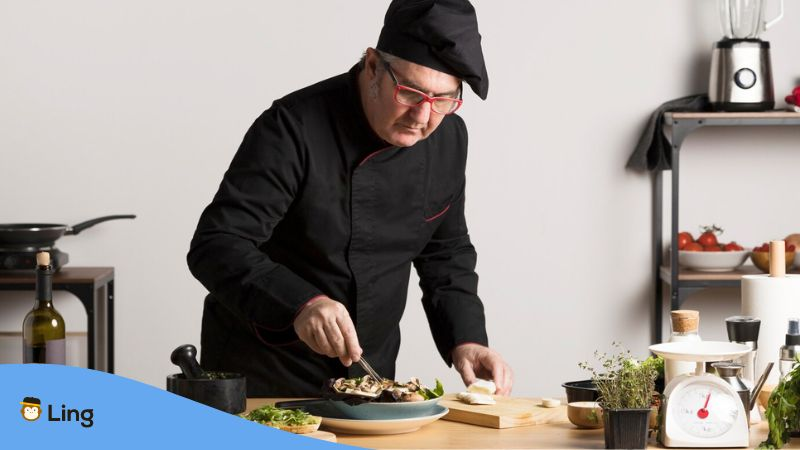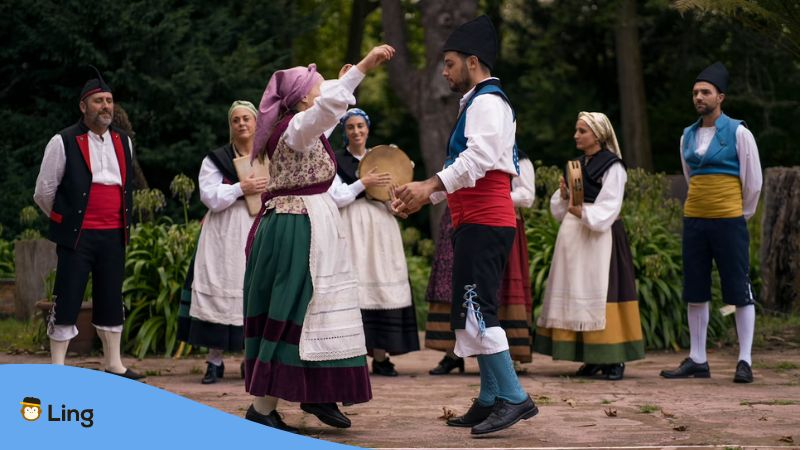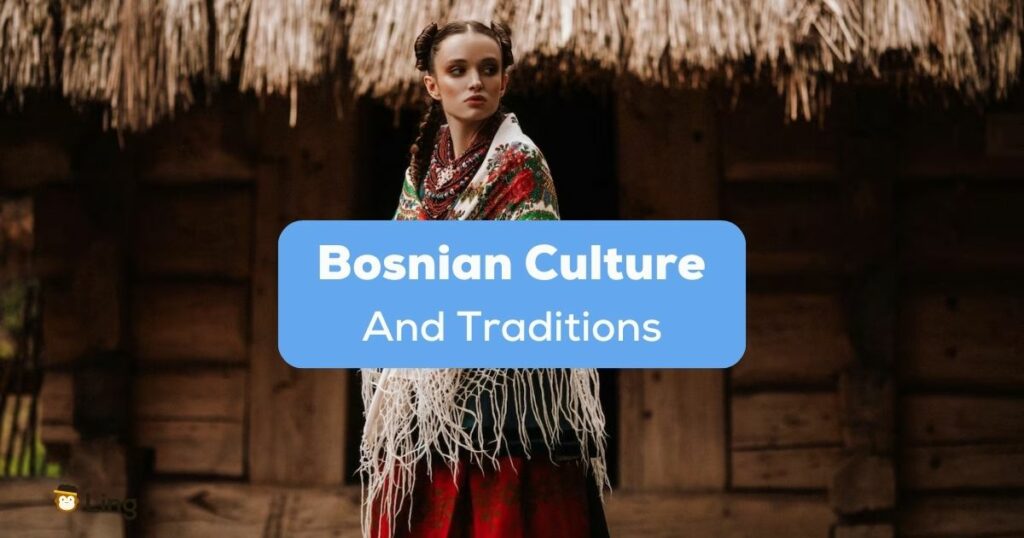You’re diving into the Bosnian language, and that’s exciting! But what about the culture of Bosnia and Herzegovina? It’s not just about the words. It’s about the people, the food, the history, and so much more.
Today, we’ll explore all that together. We’ll talk about the meals people enjoy, the dances they celebrate, and the traditions they hold dear. And we’ll do it in a way that’s easy to follow, whether you’re planning a trip or just curious about the language. Ready to learn more about Bosnian culture and traditions? Then read on!
Historical Overview And Its Impact
Bosnia’s history is a rich tapestry that has shaped its culture and traditions. Let’s explore how the past has influenced modern Bosnia.
Ottoman Empire To Modern Times
The Ottoman Empire ruled Bosnia for nearly 400 years. This left a lasting impact on everything from architecture to cuisine.
Even today, you can still see Ottoman-style buildings and Turkish influence on Bosnian dishes like “Burek” (stuffed pastry). The transition to modern times brought new influences, but the Ottoman legacy remains.
Wars And Political Changes
Recent history, including the Bosnian War, has left deep scars but also a resilient spirit. The war led to the formation of the Federation of Bosnia and Herzegovina and the Serb Republic. It’s a complex political system that reflects the country’s ethnic diversity.
Language And Communication
Language is more than words. It’s a sure way to understand a culture. In Bosnia, language tells a story of unity and diversity.
Bosnian Language And Its Significance
Bosnian is one of the three official languages, along with Croatian and Serbian. While they’re similar, Bosnian has its unique features.
Learning phrases like “Hvala” (Thank you) and “Molim” (Please) can help you connect with locals.
Communication Styles And Etiquette
Bosnians are generally warm and direct in communication. A firm handshake and eye contact are common when greeting.
And don’t be surprised if conversations include personal questions. It’s a sign of genuine interest. The word “Prijatelj” (Friend) is often used to describe close relationships.
Ethnic Diversity And Identity
Bosnia and Herzegovina is a country rich in ethnic diversity. Here, you’ll find a blend of cultures that make the nation truly unique.
Bosniaks, Serbs, And Croats
The three major ethnic groups in Bosnia are Bosniaks, Serbs, and Croats. Bosniaks are mostly Muslim, while Bosnian Serbs are Orthodox Christians, and Bosnian Croats are Roman Catholics.
You might hear the word “Narod” (people) used to describe these ethnic communities.
Islam, Eastern Orthodox Christianity, And Roman Catholicism
Religion plays a vital role in Bosnian culture and traditions. The mosques, churches, and monasteries are not just places of worship but symbols of identity. For example, you might hear the call to prayer, or “Azan,” in predominantly Muslim areas.

Culinary Traditions Of Bosnia
Bosnian food is a delightful mix of flavors and traditions. It’s a part of daily life that brings people together.
Popular Dishes And Ingredients
Bosnian cuisine is known for its hearty dishes. “Ćevapi” (grilled minced meat) and “Pita” (stuffed pie) are local favorites. Ingredients like lamb, beef, and potatoes are common. If you’re invited to a meal, you might hear “Dobar tek” (Enjoy your meal)!
Coffee Culture And Social Gatherings
Coffee in Bosnia is more than a drink. It’s a social event. “Kafa” (coffee) is often enjoyed with friends and family, and it’s not something to be rushed. Whether it’s a morning catch-up or an evening chat, coffee gatherings are a cherished tradition.
Art, Music, And Dance
Art, music, and dance are essential parts of Bosnian culture and traditions. They tell stories, celebrate history, and bring people together.
Traditional Folk Dances And Costumes
Folk dances like “Kolo” are a big part of Bosnian celebrations. People dance in a circle, holding hands, and often wear colorful traditional costumes called “Nošnja.” It’s a joyful expression of community and heritage.
Religious Influence In Art And Architecture
Bosnia’s religious diversity is reflected in its art and architecture. You’ll find stunning mosques, churches, and monasteries. The Gazi Husrev-beg Mosque in Sarajevo, for example, is a masterpiece of Islamic art.
Social Norms And Etiquette
Understanding social norms and etiquette is vital to connecting with Bosnian people. It’s about more than just manners. It’s a way to show respect and appreciation for their culture.
Hospitality And Gift-Giving
Bosnians are known for their hospitality. If you’re invited to someone’s home, it’s polite to bring a small gift. And don’t be surprised if you’re offered “Slatko” (sweet) treats and coffee. It’s a way of saying “Dobrodošli” (Welcome)!
Family Values And Gender Roles
Family is central to Bosnian culture and traditions. Respect for elders is important, and traditional gender roles are often observed, especially in rural areas. You might hear parents affectionately call their children “Sine” (son) or “Kćerko” (daughter).

Festivals And Celebrations
Festivals and celebrations are a dynamic part of Bosnian culture. They bring people together and showcase the country’s rich traditions. Let’s explore what makes these gatherings so special.
Religious Festivities And Traditions
In Bosnia, religious festivals are celebrated with great enthusiasm. For Bosnian Muslims, “Bajram” (Eid) is a time of feasting and family gatherings.
For Christians, both Christmas and Easter are observed with special church services and meals. These celebrations reflect the religious diversity and harmony in the country.
Regional Festivals And Community Gatherings
Different regions in Bosnia have unique festivals that celebrate local culture. The Sarajevo Film Festival attracts Bosnian movie lovers, while the Mostar Bridge Diving competition is a thrilling event. Community gatherings like “Sijelo” (village feast) bring neighbors together for food, music, and dance.
Learn The Bosnian Culture And Traditions With Ling!
Exploring Bosnian culture and traditions is an exciting journey, and what better way to immerse yourself than by learning the language? With the Ling app, you can dive into the heart of Bosnia right from your device.
The Ling app offers lessons in 60+ languages, including Bosnian. Whether you’re a beginner or looking to enhance your skills, the Ling app provides engaging and interactive lessons tailored to your needs.
You’ll learn not only the words but also the context, the customs, and the nuances that make Bosnian so unique.
Ready to take the next step in your Bosnian adventure? Get the Ling app on Google Play and App Store today and explore the rich world of languages and their culture!



































































